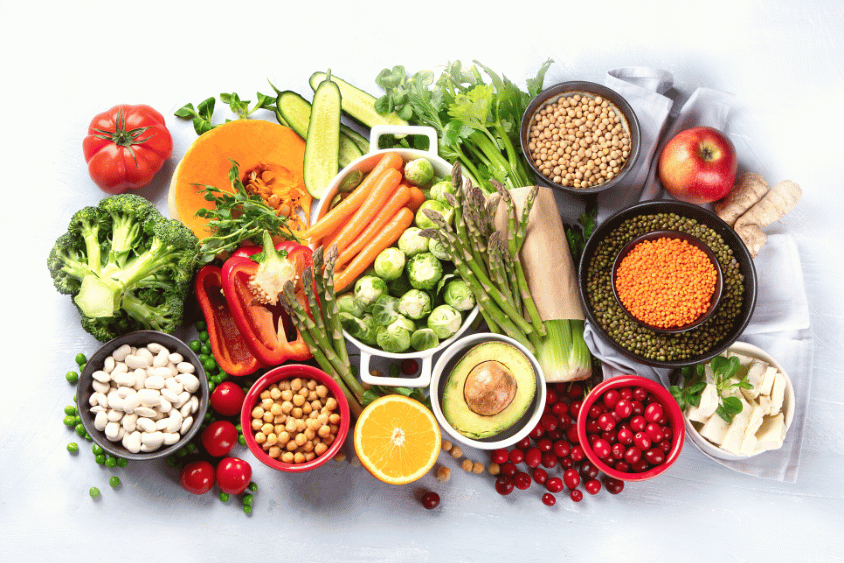Article: The Secret to Becoming Leaner
Our metabolism, also defined as basal metabolic rate (BMR) is the energy used at rest, in a neutral environment, and accounts for approximately 60% of daily energy expenditure (Pelley J 2012). Some of us have a ‘faster’ metabolism or higher BMR, than others, which is associated with a leaner, slimmer physique, but what determines how fast our metabolism is?
Build muscle
How lean we are, also known as our fat free mass (FFM) influences our metabolism. Muscle is the most energy expensive organ in our body, meaning that is requires the most energy to function. It has a higher BMR than fat, as it occupies 20% of daily oxygen consumption, compared to 4-5% in fat tissue, therefore as we build muscle our metabolism increases. This means that more energy from the food we eat gets used up by our muscle rather than getting converted into fat. (Johnstone AM et al 2005).
Resistance training using bands, weights and machines can all help build muscle in the body, alongside a diet high in protein from both animal and plant sources. How much protein you require will depend on your body weight and body composition goals and it is best to seek advice from a qualified nutritionist, dietitian or your personal trainer.
Eat more protein
The food we eat and the timings of meals can also influence metabolism, and this is called diet-induced thermogenesis (DIT). DIT is the increase in metabolism as a result of consuming food, which accounts for 10-25% of total energy expenditure. DIT is highest for protein, then carbohydrates and then fat consumption, meaning eating protein results in the highest increase in our metabolism. A study found that protein increased DIT from 10.5 to 14.6% (Westerterp K. R. et al 1999) in 8 healthy women following a high protein diet. So not only does protein help increase our metabolism through increasing muscle mass, but the process of eating it alone helps us to increase our metabolism. In addition, it also takes the longest to digest and results in the highest satiety levels, leaving us fuller for longer and less likely to snack on ultra-processed foods.
Drink less alcohol
A study of 20 healthy subjects (Raben A et al 2003) found that alcohol supressed leptin, a hormone responsible for making us feel full. When we have less leptin, we tend to eat more to have the same ‘full’ feeling, resulting in weight gain. Alcohol also reduces our ability to burn fat, therefore alcohol consumption increases fat concentration and reduces satiety.
Take a cold shower or go cold water swimming
Cold induced thermogenesis (CIT) is the energy expended to maintain body temperature in cold temperatures in actions such as shivering, which speeds up your metabolism. At colder temperatures, energy usage increases to maintain a stable core body temperature by producing heat, and our body uses our fat tissue for this.
Cold water therapy uses water around 15°C (59°F) and can include cold showers, cold water swimming and ice baths. A study on mice found that intermittent cold exposure resulted in an approximately doubled metabolism and improved glucose regulation, relating to a reduced risk of type 2 diabetes (Ravussin et al, 2014). Other benefits of cold water therapy include reducing muscle soreness, improving your immunity and improving mental health. The colder the water, the shorter the duration needed to see benefits, but also make sure to ease yourself into cold water therapy, keep a towel and warm clothes nearby and consult your doctor before undergoing it.
Take home message
These practices can help improve your metabolism for a healthier and leaner body, but there are many more benefits such as an improved mental health, stronger immunity and reduced risk of metabolic diseases. All of the above techniques should be paired with a healthy personalised diet to truly achieve the most health benefits, something which you can seek advice from a qualified nutritionist or dietitian.
Ishika Sharma (ANutr)
Ishika Sharma is a registered associate nutritionist from London, specialising in weight loss, gut health and healthy ageing. She graduated from King’s College London in Nutrition BSc, and has had clinical dietetic training in the NHS in weight loss, malnutrition, paediatrics and gut issues such as irritable bowel syndrome. She keeps up to date with nutrition research and critically appraises scientific literature to ensure all nutrition advice is current, and evidence-based.
Ishika sees patients who wish to lose weight and want a personalised approach, with regular guidance and check ins. She also gives nutrition advice for gut issues, skin problems, optimal ageing through nutrition and fatigue issues.





